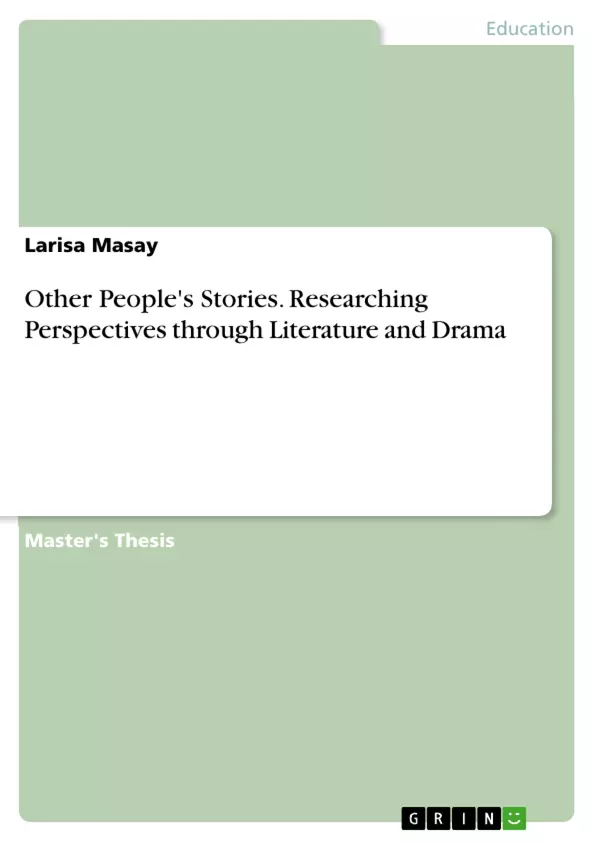The teaching of foreign languages, and especially that of English as a Foreign Language, has undoubtedly undergone massive changes in Romania during the last decades. A general openness towards innovation and transformation is to be noticed in the post-revolutionary Romanian education system. The study of a foreign language is to be accompanied by elements of literature, culture and civilization, to which students are widely exposed.
If, on the one hand, teenagers are encouraged to become active learners, teachers, on the other, are supposed to keep up with all major transformations and find the best way to help their students engage with their studies.
My practical attempts to stimulate teenagers’ involvement with the study of a different culture via literature have proved to me that drama is an extremely valuable method to be employed, as it is immediate and engaging, it allows for questions to be raised and thus it will infinitely enrich classroom discussion. It makes paths open out into roads not even thought about before, it makes written texts come alive, it colours perspectives and brings depth into our viewpoints. It contains in it the capacity to make us continuously (re)consider and (re)shape ourselves and the world that we share.
The aim of this research paper is to bring into discussion a case study developed in a Romanian upper secondary school and observe what the theory it was inspired by looks like in a practical environment. Thus, the first chapter focuses on a variety of concepts such as cultural identity, the exploration of alternatives, as well as drama and literature as tools in the search for new, fresh perspectives. The second chapter discusses the paradigms that influenced my research design, the data gathering methods I employed for my specific purposes, problems encountered and practical considerations that were taken into account. I also see this chapter as the bridge linking the theory referred to (Chapter 1) and the practice it continuously informed and reshaped (Chapter 3).
As a study, it is meant – at its turn – to open new perspectives towards the teaching of English literature. My hope is that it can be of any interest to my colleagues, or to anybody attempting to challenge the youth of today to listen carefully and purposefully to somebody else’s stories.
Inhaltsverzeichnis (Table of Contents)
- Abstract
- Introduction
- Theoretical Background
- Stereotypes and One-Dimensional Worlds
- On Cultural Identity
- Exploring Alternatives
- Literature and Drama in the Exploration of Alternatives
- Research Methodology
- Practical Work
- The Beginning of the Project
- Context
- 'It's All about Sharing, Isn't It?'
- 'Be the Muscle, Be the Eye'
- Conclusion
Zielsetzung und Themenschwerpunkte (Objectives and Key Themes)
This dissertation explores the role of literature and drama in fostering intercultural understanding and challenging stereotypes. It examines how engaging with “other people's stories” can help individuals develop a more nuanced and inclusive perspective.
- The power of stories in shaping perspectives and understanding different cultures.
- The importance of multiculturalism and its relationship to racism and stereotypes.
- The role of literature and drama in creating dialogical spaces for exploring diverse viewpoints.
- The responsibility of teachers in fostering intercultural understanding and challenging prejudiced perspectives.
- The impact of individual experiences and perceptions on the understanding of the “Other.”
Zusammenfassung der Kapitel (Chapter Summaries)
- Introduction: This chapter introduces the central question of the dissertation: how can literature and drama be used to explore and challenge stereotypes and promote intercultural understanding? It draws inspiration from a conversation between characters in Redhill's play Goodness, highlighting the power of stories in shaping individual and collective narratives.
- Theoretical Background: This section delves into the theoretical framework underpinning the research. It explores concepts like stereotypes, cultural identity, and the exploration of alternatives, highlighting the role of literature and drama in fostering critical thinking and challenging preconceived notions.
- Research Methodology: This chapter outlines the research approach and methodology employed in the dissertation. It provides a detailed account of the research design and the methods used to gather and analyze data.
- Practical Work: This section presents the practical application of the theoretical framework in a Romanian upper secondary school. It explores the use of drama techniques to engage students in the study of English literature and culture, highlighting the potential of this approach for promoting intercultural understanding and challenging stereotypes.
Schlüsselwörter (Keywords)
This dissertation examines the intersection of literature, drama, and intercultural understanding, focusing on concepts such as multiculturalism, stereotypes, cultural identity, and the role of teachers in fostering inclusivity and critical thinking. The research also explores the power of storytelling in shaping perspectives and challenging dominant narratives.
Frequently Asked Questions
What is the main objective of this research paper?
The research explores how literature and drama can be used in English as a Foreign Language (EFL) classrooms to foster intercultural understanding and challenge stereotypes.
Why is drama considered a valuable method for teaching?
Drama is immediate and engaging; it allows students to ask questions, makes written texts come alive, and encourages them to reconsider their perspectives.
What context does the case study focus on?
The case study was developed in a Romanian upper secondary school, observing how theoretical concepts of identity and multiculturalism work in a practical environment.
How do stories help in understanding the "Other"?
By engaging with "other people's stories," students develop a more nuanced and inclusive perspective, which helps in challenging prejudiced viewpoints.
What theoretical concepts are discussed in the first chapter?
The first chapter focuses on cultural identity, the exploration of alternatives, and the role of drama and literature as tools for finding fresh perspectives.
- Quote paper
- MA in Drama and Theatre Education, University of Warwick Larisa Masay (Author), 2006, Other People's Stories. Researching Perspectives through Literature and Drama, Munich, GRIN Verlag, https://www.grin.com/document/888635



